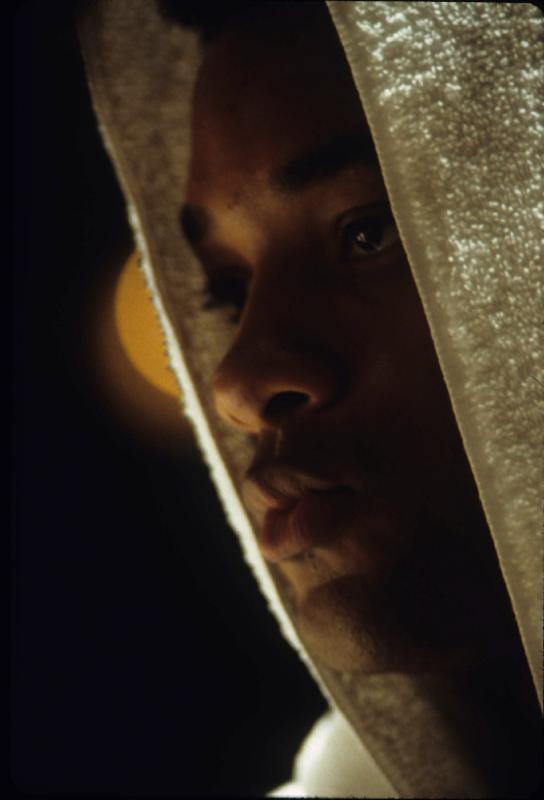Film Programmes Office to showcase Emmanuel Lubezki's cinematography (with photo)
*********************************************************************************
Born into a Jewish family, Lubezki has a highly artistic background with his parents being actors and his father having served as a film producer as well. Lubezki studied film at Mexico's Centro Universitario de Estudios Cinematográficos and has frequently collaborated with renowned directors including Alfonso Cuarón, Alfonso Arau, Terrence Malick and Alejandro González Iñárritu. In his cinematography career spanning more than 20 years, Lubezki has received eight Academy Award nominations for Best Cinematography, and he won the award in three consecutive years with "Gravity" (2013), "Birdman" (2014) and "The Revenant" (2015).
"A Little Princess" (1995) was Lubezki's first collaboration with a major Hollywood studio, and it earned him his first nomination for Best Cinematography at the Academy Awards. The story features a little girl named Sara who is sent to a New York boarding school as her father has to fight in World War I. Sara's non-conformist behaviour makes her popular among the students but is disapproved of by the headmistress. When the headmistress hears that Sara's father has been killed, she makes Sara work as a servant. Though her situation is bleak, Sara remains kind to others by holding her belief that "all girls are princesses". Lubezki teamed up with production designer Bo Welch to painstakingly recreate a Victorian school in all its nuances. The blend of green and brown provided a palette of emotions and evoked the tones of a storybook.
Starring Will Smith, "Ali" (2001) portrayed the youthful passion of legendary boxer Muhammad Ali as a reflection of an era. While location scouting with a video camera, Lubezki was mesmerised by the beauty of black skin against the black sky, and he then posed his suggestion of shooting the film mainly in digital to Michael Mann, the director. In addition, Lubezki extensively used hand-held camera with or without Steadicam to film - the proximity of the camera put the spectators right inside the action, especially in the fight scenes. The montage of different angles and textures yields a novel form in itself. Lubezki occasionally overexposed his images to showcase the inherent colour of the lighting and setting, giving the film a prominent white tone.
Lubezki created an illusion of an uninterrupted long take approach like that in Hitchcock's "Rope" (1948) for director Iñárritu in "Birdman". The film follows Riggan (Michael Keaton), who was once famous 20 years ago for playing Birdman and is now faded and trying to regain his popularity through a Broadway production directed and acted by himself. However, things don't play out as he desired.
"Last Days in the Desert" (2015) follows the 40-day journey of Yeshua alone in a desert and searching for the meaning of life. He seeks a conversation with God but Yeshua's inner demon continues to upset his peace of mind. Using natural light to the extreme, Lubezki minimised the amount of lighting in the dark. Furthermore, Lubezki was able to recreate Yeshua's desert sojourn in the Anza-Borrego Desert in California with his shooting equipment, filming the most poetic and mystical moments at dusk and dawn.
"Song to Song" (2017), the fifth collaboration between Lubezki and director Malick, features a guerrilla filmmaking approach that captured spontaneity and reality concurrently. The film tells of the pursuits in music and love among guitarist Faye (Rooney Mara), music producer Cook (Michael Fassbender) and singer-songwriter BV (Ryan Gosling), and also features the appearances of numerous noted singers and bands thanks to shooting at the Austin City Limits Music Festival.
To complement the screenings, veteran cinematographers Henry Chung and O Sing-pui as well as directors Philip Yung, Chan Siu-kuen and Lee Cheuk-pan have been invited to be the guest speakers for seminars. The three seminars are entitled "The Art of Emmanuel Lubezki" (February 16, 4.45pm), "Their Heroes" (February 24, 4.30pm) and "A Brief Encounter of Hong Kong Style" (March 1, 9.10pm). All the seminars will be conducted at the Cinema of the HKFA in Cantonese with free admission.
"Ali" is in English and French, while the other films are in English. "Song to Song" has Chinese subtitles, while the other films have Chinese and English subtitles.
Tickets priced at $55 are now available at URBTIX (www.urbtix.hk). For credit card telephone bookings, please call 2111 5999. For programme enquiries, please call 2734 2900 or visit www.lcsd.gov.hk/fp/en_US/web/fpo/programmes/lubezki/index.html.
Ends/Monday, January 21, 2019
Issued at HKT 19:05
Issued at HKT 19:05
NNNN





